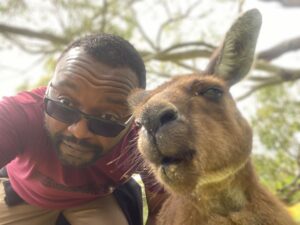I’ve been into personal development since I stumbled upon my first self-help book, Gifted Hands by Ben Carson. The year was 1997 and I was a troubled teenager living in rural Kenya who had just lost his much-loved stepdad. Over the last few years, I’ve really upped my personal development game. Rather than work on myself haphazardly, I wanted to find a comprehensive framework to make sure that I’m covering all aspects of my personal growth. That way, I was not just getting in good some areas and ignoring others.
In my research, I found 3 frameworks to help holistically cover all major aspects of personal development:
- John and Missy Butchers Life book
- Stefan James Life Mastery Blueprint
- The Handel Method 12 Areas of Life.
The next task was to evaluate these frameworks and decide which one was the most comprehensive and simple to follow before adopting. My criteria as simple:
- How popular, established or widely adopted is the framework?
- How comprehensive is it?
- Do I really admire or think about the world of the teacher?
After much consideration, I decided to go with John and Missy Butchers Life book 12 dimension and mastery. I found it comprehensive, widely adopted and I really like the kind of life they have built.
Here are the 12 dimensions of life mastery:
- Your health and fitness.
- Your intellectual life.
- Your emotional life
- Your character
- Your spiritual life.
- Your love relationships.
- Parenting.
- Your Social life.
- Your Finance life
- Your Career.
- Your Quality of life.
- Your Life vision.
For every dimension of life master, you need to ask yourself the following questions:
- What is your premise in this area?
What beliefs (good or bad e.g. limiting beliefs) do you have about this area? - What is your vision for this area?
What do I want out of this area? - What is the purpose of this area?
Why do I want it? - What is your strategy for accomplishing your goal in this area?
1.Your Health & Fitness
Your health and fitness affect all other areas of your life. For a long time, I ignored this area.
- What is the vision for your health and fitness e.g.
- Ideal weight.
- How do I want to feel every day
- Specific fitness goals E.g running a marathon.
- Why do you want to be fit and healthy?
Here are some of my personal (make it personal to you)- Have the energy to engage with my child and be a good dad.
- Have the energy to fulfil my goals.
2.Your Intellectual Life
Everything we see around was once an idea in someone’s mind. Therefore it makes sense to always work on our mind. We have a choice on what we think about and how we bring our ideas to life.
- What skills do you need to learn in order to execute on your dreams e.g.
- Books to read this year.
- Seminars/course/Classes to enrol.
- Get better at executing using this 3 step process (Think Plan Do):
- Think about what you want (within our control and achievable)
- Plan. Create a strategy for achieving it
- Do. Commit to doing it and take action on the direction of the goal.
3.Your Emotional Life
Imagine driving a car that has a blank dashboard. You have no idea whether you are driving above the speed limit, running out of fuel or the car is overheating. Our emotions are the body wisdom to tell us what is wrong. They are like the car dashboard that tell us what is really going on under the hood.
- How would you like to feel throughout the day?
- What makes you happy (my wife tells me that eating a big juicy burger every day does not count as a lasting source of happiness)?
Now commit to doing more of that. - What makes you sad?
What can you eliminate from this list today?
4. Your Character
Your character is about who you are at the core. It forms the decision-making framework and shapes the way you interact with the world.
- What do you want to stand for?
- What values do you want to have?
A good example of personal value is Benjamin Franklin’s 13 virtues. See http://www.thirteenvirtues.com - What level of integrity do you want to operate at?
- List your bad habits/negative patterns For each habit, identity:
- What is the payoff/benefit I am getting from this habit?
- What price are you willing to pay if you don’t change the behaviour (future pace yourself).
- What will I gain if I change this habit?
5.Your Spiritual Life
This is my strongest area of personal growth. I’ve been a strong practising Christian for the last 24 years. That said regardless of your spiritual beliefs, here are a few things to ponder on to grow this area
- What is your spiritual goal?
- What daily practises will support the goal. e.g. Gratitude journaling, study, prayers etc
6.Your Love Relationship
If there is one thing I’ve learnt after being with my wife for 13 years is that relationships take a lot of ongoing work and that at the core it’s about meeting each other’s needs.
- What does it mean to have a great relationship?
- What daily habits or actions do you need to cultivate or follow in order to have a great relationship?
You might want to pick one habit and work on it until you master it then move to the next one.
7.Your Parenting Life
This area is more close to home now that I am a dad. Our role as parents is to raise healthy, happy and independent children. We are our children’s world. Our level of health is what health means to our child. Our values shape their values.
So here are few things worth pondering?
- Identify the Core values you want to live by e.g. Courage, kindness, self-responsibility.
- How do you bring these values to life?
- What values do you want to instil in your children?
8.Your Social Life
This area is about how you manage your relationship with family and friends. Relationships take a lot of ongoing energy and care and therefore you want to be very intentional about how you manage your social life.
In this area you want to ensure that:
- You are deliberate about the types of friends you want to have by:
- Getting clear about your social values and the non-negotiable on your friendships.
- Increase the quality of your network by seeking out passionate people that can help you move your life forward.
- Get rid of people that are pulling you down.
- Create healthy boundaries in your relationships.
9.Your Finance Life
This area is all about understanding your relationship with money as well as learning the systems you can use to create financial abundance for yourself while creating value for others.
- What is your relationship with money?
- How would you like to see money flow through you?
- How much money do you want to save?
10.Your Career Life
How do you design a career you love and one that maximises your potential to create wealth?
- What is the purpose of your career?
- What is it going to cost you to achieve this goal? Are you willing to pay the price to achieve these goals?
- What skills do you need to learn or attain?
11.Your Quality of Life
What things make us happy and contribute to a better of life?
- What material things do you want to have ( e.g. house, car etc)
- What kinds of experiences you want to have (e.g travel)
- What does your daily life look like?
What type of environment do I want to be surrounded by every day?
12.Your Life Vision
Do you have a compelling picture of the person you want to become and the life you want to live?
What do you see as your greatest contribution to yourself, your community or your planet?
Conclusion
Personal development is a lifelong exercise but the long term rewards are worth it. Please take time to look at those areas, make notes and act now.
In the next article, I’ll delve into the top 5 things that are slowing down your personal development journey.




